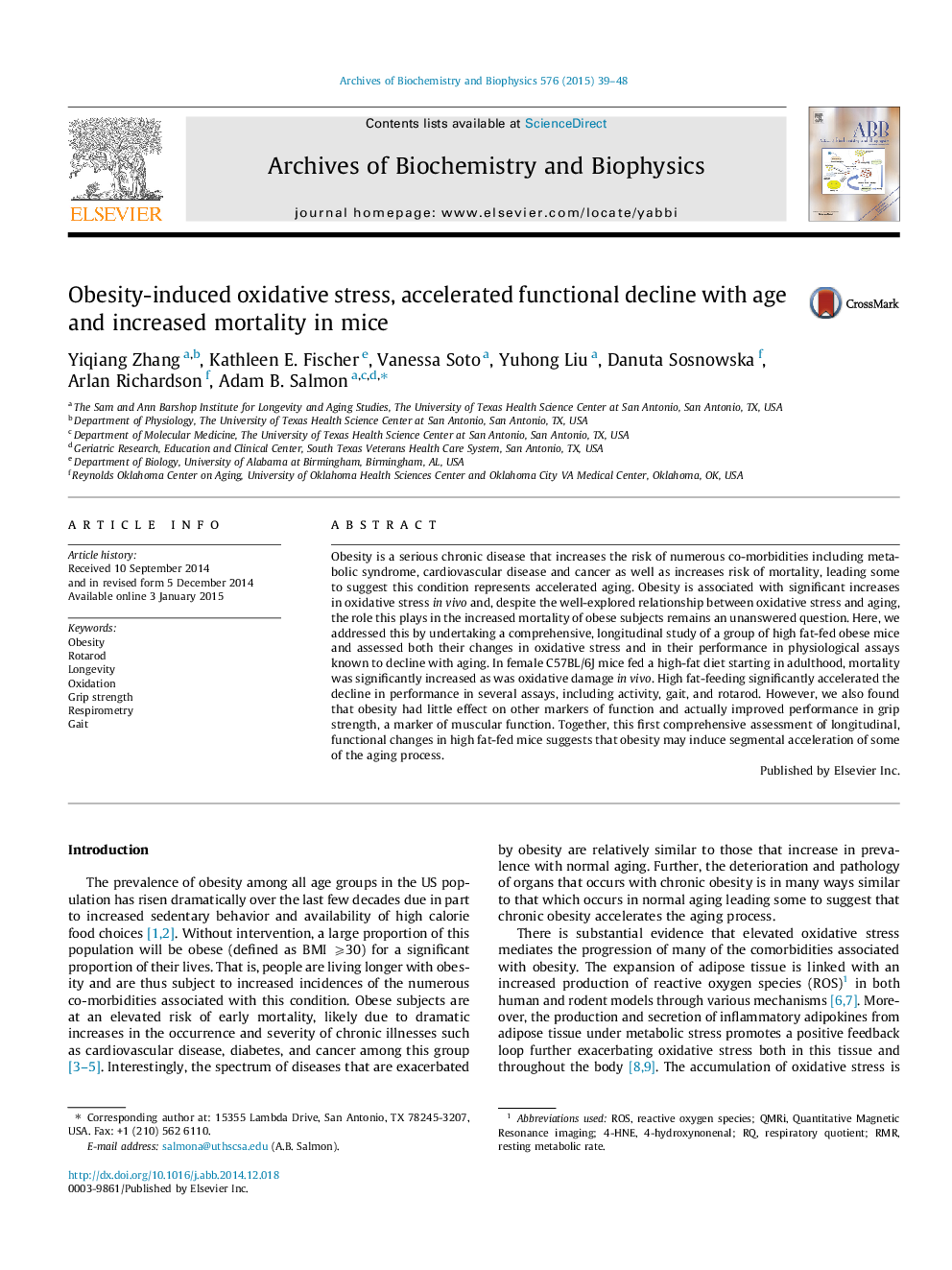| Article ID | Journal | Published Year | Pages | File Type |
|---|---|---|---|---|
| 1924929 | Archives of Biochemistry and Biophysics | 2015 | 10 Pages |
•C57BL/6 mice fed a high fat diet are short-lived compared to chow-fed controls.•Obesity is associated with increased oxidative stress in multiple tissues.•Obesity accelerates the decline of some age-related physiological functions.•Changes in activity and co-ordination are correlated with lifespan.•We identify potential segmental acceleration of aging in obese mice.
Obesity is a serious chronic disease that increases the risk of numerous co-morbidities including metabolic syndrome, cardiovascular disease and cancer as well as increases risk of mortality, leading some to suggest this condition represents accelerated aging. Obesity is associated with significant increases in oxidative stress in vivo and, despite the well-explored relationship between oxidative stress and aging, the role this plays in the increased mortality of obese subjects remains an unanswered question. Here, we addressed this by undertaking a comprehensive, longitudinal study of a group of high fat-fed obese mice and assessed both their changes in oxidative stress and in their performance in physiological assays known to decline with aging. In female C57BL/6J mice fed a high-fat diet starting in adulthood, mortality was significantly increased as was oxidative damage in vivo. High fat-feeding significantly accelerated the decline in performance in several assays, including activity, gait, and rotarod. However, we also found that obesity had little effect on other markers of function and actually improved performance in grip strength, a marker of muscular function. Together, this first comprehensive assessment of longitudinal, functional changes in high fat-fed mice suggests that obesity may induce segmental acceleration of some of the aging process.
